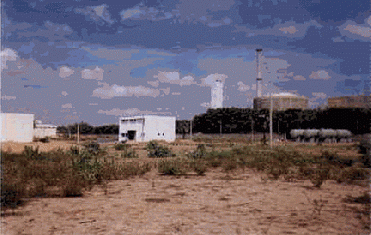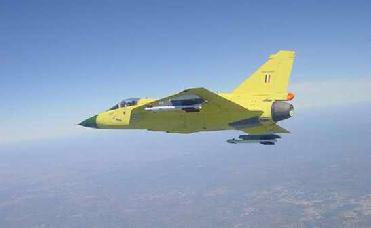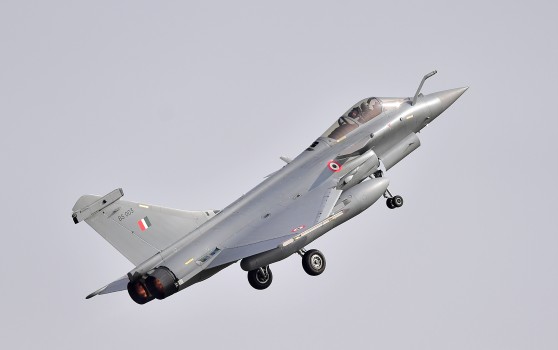
File photo of Kalpakkam nuclear plant near Chennai. Photo credit: Department of Atomic Energy
NEW DELHI (BNS): Taking no chances with its security following last month�s Mumbai terror attacks, India has decided to tighten security around its key nuclear installations.
As a step in this direction, the Director General of Civil Aviation (DGCA) has declared a no-fly zone around Kalpakkam nuclear plant in the southern state of Tamil Nadu.
The civil aviation agency has issued notices, prohibiting any air activities up to 10,000 feet above Kalpakkam. The DGCA said that the step was being taken in view of the heightened security of the country. After the issuance of instructions, no aircraft would fly in the radius of 10 km around Kalpakkam, one of the key nuclear installations in the country.
The DGCA has special powers under the Aircraft Act of 1934 to declare no-fly zones in the country. It can put a hold on any activity involving air traffic control, navigation, and traffic management. Kalpakkam is located near the southern metropolis of Chennai. It was built with Russian assistance and is one of the biggest nuclear installations in the country.
The Defence ministry had put the Indian Air Force on alert following intelligence inputs that terrorists might carry out 9/11-type attacks in the country. The air defence systems were put on alert after the intelligence report.
Even as the air defence system is being geared up, security experts believe that there are significant gaps in radar coverage over India. The areas in southern India are particularly vulnerable, according to an internal assessment. As an immediate measure, the IAF has decided to install new radars around key cities and establishments to detect any intruder. Many areas in the country are not covered by radars and some of the locations are vulnerable to threats from low flying objects.
The issue has been discussed at various levels in the security establishment and the Government is looking to buy new sophisticated radars to increase their reach. India is a nuclear power and has a number of plants dotting across the country. The security of these plants has become a key area of concern, particularly after the recent terror attack in Mumbai.
 Previous Article
Previous Article Next Article
Next Article













The Indian Air Force, in its flight trials evaluation report submitted before the Defence Ministry l..
view articleAn insight into the Medium Multi-Role Combat Aircraft competition...
view articleSky enthusiasts can now spot the International Space Station (ISS) commanded by Indian-American astr..
view article